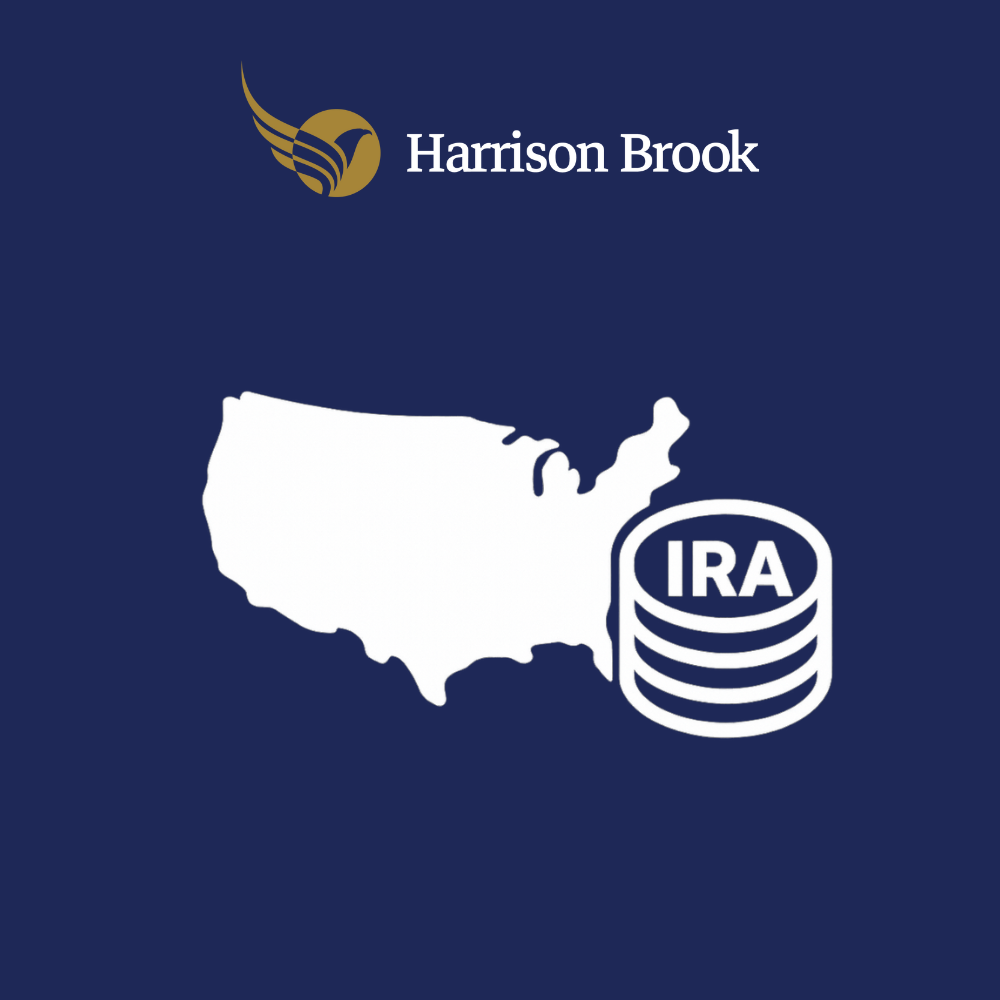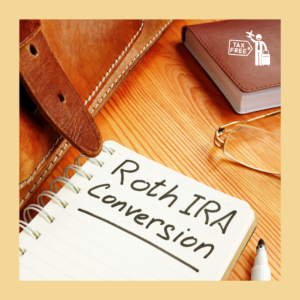
For many Americans, an Individual Retirement Account (IRA), also known as an ira account, is a cornerstone of retirement planning. But what if life takes you abroad? Whether you are relocating for work, retiring overseas, or even renouncing US citizenship, understanding what happens to your IRA is crucial. Many Americans who live abroad still maintain their ira accounts, but leaving the United States does not mean leaving your retirement savings behind—it introduces new rules, taxes, and planning considerations.
In this article, we will explore what happens to your IRA when you move out of the US, the impact on withdrawals, international tax agreements, and practical strategies to protect your retirement wealth and your overall retirement portfolio.
Can I Keep My IRA if I Move Abroad?
Yes, you can keep your IRA if you move abroad. The account remains in the US under the same custodian, and you continue to own it as a non-resident. However, as a foreign person, you may be subject to different account rules and tax treatment compared to US citizens or residents. Once you become a tax resident of another country, local tax rules and US withholding requirements come into play.
For example, the US generally withholds 30 percent tax withheld at the source on distributions to non-residents. This rate may be reduced if the country you move to has a tax treaty with the United States. It is also important to understand that while you can keep your IRA, you may face restrictions on making new contributions once you are no longer a US resident with earned income. Additionally, you must maintain compliance with ongoing US tax filing and reporting obligations as a non-resident with a US IRA.
What About My 401(k) or Employer-Sponsored Plans?
If you still have a 401(k) and other employer sponsored retirement plans from a previous employer, you may want to roll them over into an IRA before moving abroad. This can provide greater flexibility and control over your investments. Keep in mind that employer plans may have stricter distribution rules and higher fees for non-residents.
Do I Pay US Taxes on IRA Withdrawals While Living Abroad?
Yes. The IRS taxes IRA distributions even if you live overseas. These withdrawals are generally taxed as ordinary income and subject to ordinary income tax rates. Typically, a 30 percent withholding tax applies to non-resident distributions. However, many countries have tax treaties with the US that reduce or eliminate this withholding tax.
For instance, if you retire in France or the UK, treaty provisions may allow you to pay tax locally instead of in the US, avoiding double taxation. Without proper planning, you could face a higher tax bill in both jurisdictions.
What Countries Recognize US IRA Accounts?
Countries with tax treaties, such as the UK, Canada, France, Germany, and Spain, often recognize IRA distributions and other US accounts for tax purposes. These agreements outline how pensions and retirement savings are taxed across borders.
If you move to a country without a treaty, your withdrawals may be subject to full US withholding and local taxation. In such cases, careful financial planning is essential to prevent unnecessary losses.
What Happens If I Quit or Stop Contributing to My IRA?
If you stop contributing, your IRA remains intact and continues to grow tax-deferred. You are not required to withdraw funds until age 73 or 75 (depending on birth location) under Required Minimum Distribution (RMD) rules, unless you choose to access the money earlier.
However, early withdrawals before age 59½ are fully taxed as ordinary income and generally incur a 10 percent penalty, unless you qualify for an exception.
Can I Transfer My IRA to Another Country?
You cannot directly transfer a US IRA to a foreign retirement plan. Each system operates under different rules. However, some Americans choose to withdraw and reinvest funds abroad. Be aware that foreign retirement plans may not offer the same favorable tax treatment as US IRAs, and this approach can trigger heavy taxation if not carefully structured.
Another option is to maintain the IRA in the US while building additional savings vehicles in your new country. Certain withdrawals from your IRA may qualify for tax free status if specific conditions are met, such as with Roth IRAs after the required holding period.
What If I Renounce My US Citizenship?
Renouncing US citizenship adds another layer of complexity. The US exit tax may apply if your net worth or average tax liability exceeds certain thresholds, and this can result in a significant tax hit. Foreign nationals who have US retirement accounts, such as IRAs, are also subject to these rules and should pay close attention to their specific tax and account transfer considerations. IRA accounts are considered “deferred compensation items,” which means you may owe tax on their value at the time of expatriation unless you make specific elections.
If you renounce, you can generally still keep your IRA, but distributions will be taxed at non-resident withholding rates. The real challenge is managing the exit tax and ensuring treaty benefits continue to apply. It is crucial to track tax paid in both countries to avoid double taxation and to optimize available tax credits or refunds.
Do I Lose My Social Security If I Move Abroad?
No, in most cases you can continue to receive Social Security benefits while living overseas. There are exceptions for certain countries with limited US diplomatic presence, but the majority of popular retirement destinations allow payments to flow without issue.
Reporting Requirements and Compliance for Expats
When you move abroad as a US citizen or green card holder, your tax obligations don’t end at the border. The US tax law requires you to report your worldwide income, including income from foreign sources and foreign investments, on your annual US tax return. This means that even if you’re living in a foreign country, you must still comply with US reporting requirements for your retirement accounts, such as a 401(k), Traditional IRA, or Roth IRA, as well as any foreign bank accounts or foreign retirement plans you may open.
One of the most important regulations to be aware of is the Foreign Account Tax Compliance Act (FATCA). FATCA requires foreign financial institutions to report information about US account holders to the IRS. If you have foreign bank accounts, brokerage accounts, or other foreign assets, these may be reported to the US government, and you may also have to disclose them yourself.
In addition, if the total value of your foreign financial accounts exceeds $10,000 at any point during the year, you must file the Report of Foreign Bank and Financial Accounts (FBAR). This includes not only bank accounts but also certain foreign retirement accounts and investment accounts. On top of FBAR, many expats must also file Form 8938 (Statement of Specified Foreign Financial Assets) with their US tax return, which covers a broader range of foreign assets, including foreign retirement plans and foreign investments.
These reporting requirements are in place to ensure that US expats pay taxes on their worldwide income and to prevent tax evasion. However, they can also create a risk of double taxation, being taxed by both the US and your country of residence. Fortunately, tax treaties between the US and many foreign countries, as well as the foreign tax credit, can help reduce your US tax liability on income that’s already been taxed abroad. Understanding the tax treatment of your retirement accounts under both US and foreign tax laws is crucial for making informed decisions and avoiding unexpected tax bills.
Interest income, rental income, and other types of foreign income may also be subject to US tax withholding, depending on the source and the relevant tax rules. The tax implications for your IRA accounts, 401(k), and other retirement savings can vary significantly depending on the foreign country’s tax laws and whether a tax treaty is in place.
Given the complexity of these reporting requirements and the potential for significant tax liabilities, seeking professional tax advice is highly recommended. A qualified tax professional can help you navigate the rules, ensure you’re taking advantage of available tax credits like the foreign tax credit, and keep you in compliance with both US and foreign regulations. This not only helps you avoid penalties and fines but also allows you to focus on your retirement plans and financial goals with confidence.
In summary, living abroad as a US expat comes with a host of reporting requirements for your foreign accounts, retirement plans, and worldwide income. Staying compliant with US tax law and understanding the tax treatment of your retirement assets in both countries is essential for protecting your retirement savings and minimizing your tax liabilities.
Practical Tips for Americans Taking Their IRA Abroad
- Check tax treaties – This can reduce withholding and prevent double taxation.
- Consider rolling over your 401(k) – IRAs often provide more flexibility for expats. When making decisions about your IRA abroad, be sure to consider your future plans, including where you intend to retire and your long-term financial goals.
- Plan ahead for exit taxes – Especially if considering citizenship renunciation.
- Work with cross-border advisers – Local rules matter as much as US law. Advisers can help you optimize your retirement income from foreign pensions, annuities, and other international sources, ensuring you understand the tax implications in both the U.S. and your country of residence.
- Do not withdraw early unless necessary – Penalties and taxes can eat into savings.
FAQs – Leaving America What Happens to My IRA?
Do expats pay taxes on IRA withdrawals?
Yes, but treaty countries may reduce or reallocate tax liability. Note that capital gains within the IRA are generally tax-deferred in the US, but some countries may tax these gains differently, so it’s important to understand how capital gains are treated in your country of residence.
Can I keep my IRA if I move to the UK?
Yes, you can keep it in the US. Withdrawals are taxed under US-UK treaty rules.
What happens if I stop contributing?
Your IRA remains invested and continues to grow tax-deferred. However, contributions to foreign pension plans are generally not tax deductible for US tax purposes.
Can I cash out my IRA when I leave the US?
Yes, but expect income tax and penalties if under 59½. For Roth IRAs, qualified withdrawals are tax-free, but Roth IRA contributions themselves are made with after-tax dollars and may have different reporting requirements for Americans abroad.
What if I move to Canada?
Canada and the US have a treaty that coordinates retirement account taxation, but planning is essential. The treaty helps prevent double taxation on the same income, ensuring you are not taxed twice on your IRA withdrawals.
Conclusion
Leaving the United States does not mean leaving your IRA behind, but it does mean adjusting your retirement strategy. Taxes, treaties, and local rules all influence how much of your savings you ultimately keep. With the right planning, you can protect your nest egg, manage your US brokerage account and bank account, avoid double taxation, and enjoy a smooth transition to life abroad.
At Harrison Brook USA, we specialise in helping Americans manage their retirement accounts and investments when moving overseas. Whether you are relocating for work, retiring abroad, or considering renouncing citizenship, our cross-border financial experts can guide you through the process.
Ready to Secure Your Retirement Abroad?
Contact Harrison Brook USA today for a free consultation on your international retirement planning.



